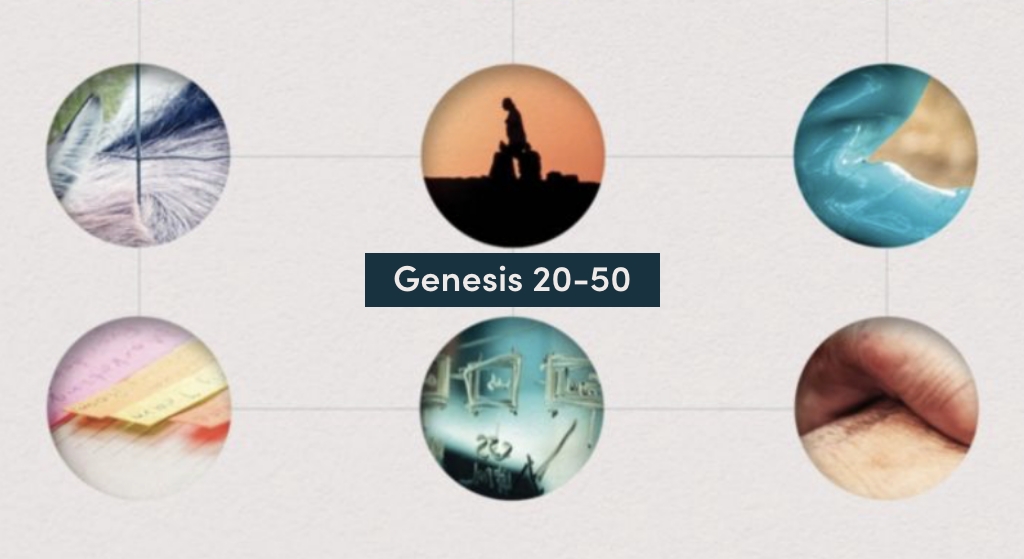by Cynthia Hopkins
Because I’m not as smart as I think I am.
I need wisdom.
I remember having that thought when I was a high school student trying to decide where I should go to college. It made its way to the surface again while I was attending that college, choosing a career path, and dating people who could potentially be my future spouse. Then I needed wisdom as a first-time parent operating on little sleep. I needed it again as a second-time parent with even less sleep. Years later, I needed wisdom as I sat in a surgeon’s office hearing difficult news. And on and on the same story goes.
I’m now firmly established in the second half of the average human lifespan. As I look back on the first half, it’s easy to confirm that I’ve needed wisdom all along the way — in family relationships, career decisions, ministry involvement, friendship, health issues, daily routine, joyful celebration, deep heartache, and more.
Wisdom and Instruction
I’ve not always been consciously aware of that need. Most days, the thought, I need wisdom, never fully forms. For every time I’ve thought to seek wisdom, there are exponentially more times that I haven’t. In the moment, I tend to rely on intuition, experience, and the rules and norms I’ve learned and accepted.
That’s true for all of us, isn’t it? There are many decisions we believe we already possess the sense to make. Many of us parent the way we were parented. We make career decisions from a place where personal goals and practicality meet. We check our calendars to determine whether we can serve the church and our bank balances to determine whether we can give to others.
It makes us think: Is the good sense we glean from intuition, experience, rules, and norms the same as godly wisdom?
Many people behave as though it is, but Scripture cautions us. Proverbs 14:12 explains, “There is a way that seems right to a person, but its end is the way to death.” Solomon — the wisest man who ever lived (see 1 Kings 4:29-31) — wrote those words. This might have been the most valuable wisdom he ever received from God, enabling and empowering the rest. Still, as vast as it was, Solomon’s practice of wisdom fell short because it was influenced by his sin nature.
And so does ours. In our very best moment on our very best day, our human wisdom is like foolishness. God isn’t impressed or in any way instructed by our insights.
In thinking about such things, the apostle Paul recalled God’s words to Isaiah, “I will destroy the wisdom of the wise, and I will set aside the intelligence of the intelligent” (1 Cor. 1:19). In the very next verse, Paul offers some hypothetical questions to help us make personal application: “Where is the one who is wise? Where is the teacher of the law? Where is the debater of this age? Hasn’t God made the world’s wisdom foolish?” (v. 20). And in case we’re still confused, he drives the point home in simple language: “God’s foolishness is wiser than human wisdom, and God’s weakness is stronger than human strength” (v. 25).
We’re not as smart as we think we are.
The Beginning of Knowledge
This doesn’t mean we can never make any wise decisions apart from a vibrant relationship that grows with God in His Word. Some of the world’s most admired and insightful teachings come from the thoughtfully brilliant minds of pagan philosophers. Some of the very best financial advice comes from people whose personal lives remain an absolute mess. The fact is, we each have the God-given capacity to excel in some areas of earthly wisdom — but only to a certain extent. In the end, it leads to death.
Our good sense is never enough. It’s always limited by the human condition. We need God’s wisdom, and we don’t find it within ourselves, our personal experiences, or in the accepted ways of culture. We find God’s wisdom in God’s Word, and very specifically in the book of Proverbs.
God knew we would be prone to lean into our human “wisdom,” so He gave us the book of Proverbs to develop in us a continual, conscious awareness of our desperate need. God has given us a broad scope of instruction in Proverbs. Parenting, work, friendship, finances, morality, marriage, anger, happiness — the various circumstances, relationships, emotions, and pursuits of life are met here with principles that lead us on the path of wisdom.
That’s important to understand because the pursuit of God’s wisdom is a lifelong process. Wisdom isn’t only a need for those whose brains haven’t yet fully developed — it’s a journey that encompasses every age. In Proverbs 1:4, Solomon identifies the young and inexperienced as his audience. Then in verse 5, he reminds the most faithful senior adults among us that he’s writing to them too: “Let a wise person listen and increase learning.” The fact is, you can read from the book of Proverbs every day of your life and never stop gaining wisdom.
But we must choose wisdom; it’s a journey we either resist or receive. While it’s true that I’ve needed wisdom throughout my life, it’s also true that I haven’t always sought it. I haven’t always embraced it. If I’m being honest, there have been times I haven’t even wanted it. My guess is that you can relate.
Solomon could relate too. He recognized his limitations and asked God for a discerning heart. Then he received that gift and was blessed. (See 1 Kings 3:5,9-14.) Somewhere along the way, though, Solomon began to reject that God-given path in favor of another of his own choosing. (See 1 Kings 11:1-3.) He threw God’s instruction about marriage into the wind, and the devotion of his heart shifted to the wisdom of the culture he had created. Solomon began to worship other gods, and there were far-reaching effects. His evil behavior broke the covenant with God.
Find Wisdom and Acquire Understanding
Just as there are incredible blessings that come with receiving and applying God’s wisdom, there are terrible consequences that come with rejecting it. So begins the book of Proverbs, with a laser-like statement of purpose that both encourages us to receive God’s wisdom and calls our resistance to that invitation exactly what it is: “The fear of the LORD is the beginning of knowledge; fools despise wisdom and discipline” (Prov. 1:7).
And that same purpose carries throughout the book’s 31 chapters. In Proverbs, God invites us to set aside the limits of human wisdom. He shows us in practical ways how to come under His unlimited and unmatched authority and direction. As we open the pages of Proverbs to study the instructions for daily living that God sets forth, we receive principles that equip us to make wise decisions in every life stage and circumstance. What a gift!
We don’t have to rely on hindsight to know the way of wisdom. Instead, we can engage with God now to discover and apply His insights for daily living. We’re fools to ignore godly wisdom. In fact, it’s only in His wisdom that we will ever truly live.
Cynthia Hopkins is a longtime writer of Bible studies, devotions, and articles across all age groups from students through senior adults. She now serves in that capacity on Lifeway’s short-term studies team. Cynthia speaks regularly at various events and leads multi-church women’s retreats and mission endeavors. She lives in The Woodlands, Texas.
This article originally appeared in HomeLife magazine (July 2023). For more articles like this, subscribe to HomeLife.

 2 weeks ago
27
2 weeks ago
27






 English (US) ·
English (US) ·